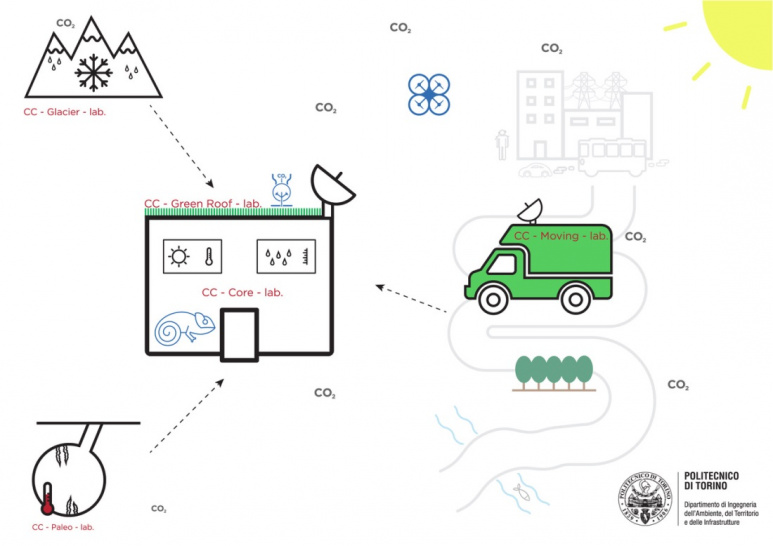Department of Excellence on Climate Change (2018-2022)

climate_change@polito PROJECT
The impacts of global warming and climate change on mankind and on socio-economic systems are already remarkable and they are likely to grow in the next decades. Action strategies in this domain refer to the mitigation of the causes, acting on the reduction of emissions of GHGs and on recovery and reuse of materials on one side and to the definition of solutions for adaptation to changes on the other side, considering that some effects of climate change are yet unavoidable.
In this framework, the Department intends to contribute to improving knowledge in the field of analysis and fight to climate change on the territory at national and international level. The budget allocated to the project climate_change@polito allows to intervene on human capital, education and infrastructures, with the aim of focusing competences in these domains, integrating knowledge and better using existing and further coming resources (also in terms of laboratories, facilities, equipment).
climate_change@polito project (cc@polito) qualifies DIATI as an international point of reference under the technical, scientific and educational point of view for the analysis and the fight to the effects of climate change with particular reference to (i) innovation strategies for climate change monitoring and analysis, (ii) climate change mitigation through a deep analysis of negative technologies and the entire cycle of resources and materials, from their extraction to their use, with consequent emissions or re-emissions in the environment and (iii) technological and planning solutions for adaptation to climate change.
Moreover, the research team intends to analyze networks involved in the process, for the extraction and distribution of water resources, air, for moving people, materials and food, as well as for soil and subsoil use.
Thanks to the funding given to the project by the initiative of the Italian Ministry for Education and Research, Departments of Excellence, activities in the abovementioned domains will be strengthened, thanks also the enrollment of new internationally renowned professors and to the creation of an integrated and multi-site laboratory. The research division will include an outfield laboratory to study technologies for carbon sequestration and mitigation of greenhouse effect (such as green walls and green roofs), a moving laboratory to control and monitor climate change effects, a cave laboratory to study paleoclimate and a laboratory on a glacier to study the evolution of glacier masses.

With reference to educational activities, a new generation of environmental and civil engineers will be trained in order to be able to design new engineering solutions compatible with changing climate conditions. To this end, a new specialization in Climate change will be included in the M.Sc. course in Environmental and Land Engineering (entirely provided in English) and a 2nd level Master on adaptation and mitigation solutions for climate change will be launched.
The final objective of the project is to develop adaptation technologies and solutions that may be rapidly usable by citizens and transferred to the industrial sector, to public institutions and to local entities, in order to make societies for resilient to ongoing changes.
